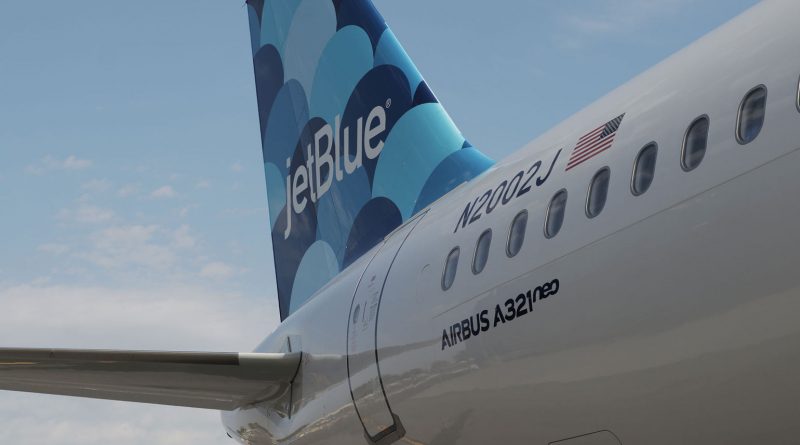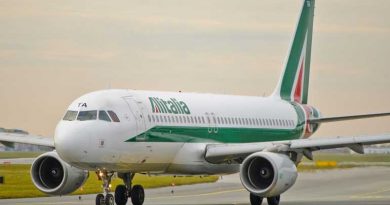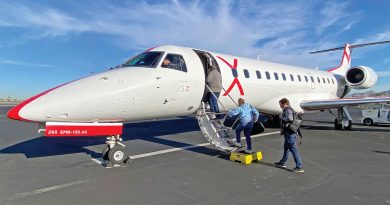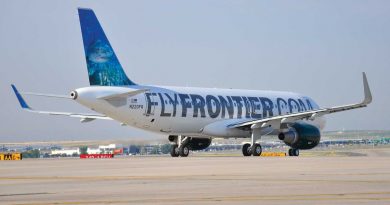Unpacking JetBlue's Spirit bid: A challenge to the Frontier merger: Travel Weekly
In something of an airline love triangle, JetBlue is making a play to break up the engagement between two low-cost airlines before they get hitched.
Months after Spirit Airlines committed to merging with Frontier Airlines, New York-based JetBlue made an unsolicited $3.6 billion offer for Spirit on Wednesday, besting Frontier’s $2.9 billion offer.
“Once the Spirit and Frontier deal was announced, it created a window of opportunity that, if you don’t act in it, it’s gone,” said JetBlue CEO Robin Hayes in a call with investors on April 6. “But the concept and the idea of how do we take JetBlue and turn it into a more national brand … that’s clearly something we’ve been thinking about for years.”
But some industry experts question the two airlines’ compatibility, saying that other than using the same aircraft, JetBlue and Spirit have opposite styles and offerings that make them a curious pair.
Nobody was expecting this,” said Jason Rabinowitz, an industry analyst and blogger. “Integrating two similar airlines like Frontier and Spirit is a big enough challenge. … Integrating two wholly different airlines with different styles, different approaches, different target customers — that’s going to be a very difficult challenge for any airline, especially for JetBlue.”
Revisiting the Frontier offer
In February, Spirit said it had entered into a merger agreement with Frontier Group Holdings, Frontier’s parent company. Spirit and Frontier would combine in a stock and cash transaction of $2.9 billion, making the seventh- and eighth-largest U.S. airlines, respectively, the fifth largest.
The combined ultralow-cost airline would compete with American, Delta, United and Southwest in more markets than they could as separate carriers. Collectively, the pair would offer more than 1,000 daily flights to about 145 destinations.
Frontier on Wednesday insisted that it is the better match for both Spirit’s customers and stakeholders.
“A combined Spirit and Frontier will deliver $1 billion in annual savings for consumers and offer even more ultralow fares to more places nationwide, creating America’s most competitive ultralow-fare airline,” said a Frontier spokesperson. “Unlike the compelling Spirit-Frontier combination, an acquisition of Spirit by JetBlue, a high-fare carrier, would lead to more expensive travel for consumers.”
JetBlue CEO: Dig deeper to see a sensible deal
Hayes argues that JetBlue is also compatible with Spirit and that by rebranding the Spirit fleet and servicing 130 destinations, the combined airline would be in a better position to compete with the Big Four carriers.
In a memo to employees obtained by USA Today after the bid was made, Hayes addressed the perceived differences between the brands.
“We can all agree that Spirit has a very different brand and product than JetBlue, and so at first glance, you may not think we’d make a great pair,” Hayes said. “However, when you dig deeper, you’ll realize we could be a perfect match.”
JetBlue sees opportunities with Spirit’s product to gain relevance nationwide, noting the brand can grow faster by buying Spirit than it would if it keeps growing organically. JetBlue has planes on order through 2026, but they dwindle after that.
Acquiring Spirit’s 173 planes will grow JetBlue’s fleet to 450, even as global supply chain issues have slowed jet deliveries. JetBlue would also get Spirit’s 32,000 crew members, including pilots, which have been difficult to recruit during the current labor shortage.
JetBlue’s move also serves the purpose of breaking up or complicating the potential merger between Frontier and Spirit. If Frontier has to up its offer to win over Spirit, it becomes a more costly venture for the budget carrier, said George Ferguson, senior aerospace and airline analyst at Bloomberg Intelligence.
From JetBlue’s perspective, he said, the combined ultralow-cost carriers represent “a lot of competition.”
“I think they’re trying to get in the middle of that,” he said. “If you’re JetBlue, are you going to sit there and watch Frontier and Spirit put themselves together and become a powerhouse and go right around you?”
Antitrust scrutiny
While Spirit has yet to decide which way it will go, any deal will be subject to federal scrutiny. Two congressional Democrats who have opposed a Spirit-Frontier merger have filed legislation to prohibit mergers valued at more than $5 billion. Frontier and Spirit have valued their merger at $6.6 million.
Eight Democrats also warned that the proposed Spirit-Frontier merger could hurt consumers by creating a dominant player among ultralow-cost carriers and further concentrate the U.S. airline industry.
Both airlines were prepared to work with the federal government.
While the pair had a long way to go to get antitrust approval and undergo Department of Justice review before the merger could be finalized, that process was underway.
If Spirit pairs with JetBlue, the hurdles to win federal approval aren’t “insurmountable,” said Ferguson, because the airlines “don’t have enough concentration inside the system.”
But Ferguson sees a market still recovering from the ongoing pandemic. Leisure travel is up, and he expects more customers to accept fewer frills on flights in order spend more in leisure destinations, especially on flights of four hours or less.
“We’ll take the cheaper price, and we won’t have much legroom. We’ll suck it up and just spend that money at Disney or spend the money in Vegas, not on the airplane ride,” he said. “I think that Frontier and Spirit have that advantage, and to take a whole airline like Spirit and turn it into JetBlue, I don’t know if that’s going in the right direction to where the marketplace is going.”
Source: Read Full Article



